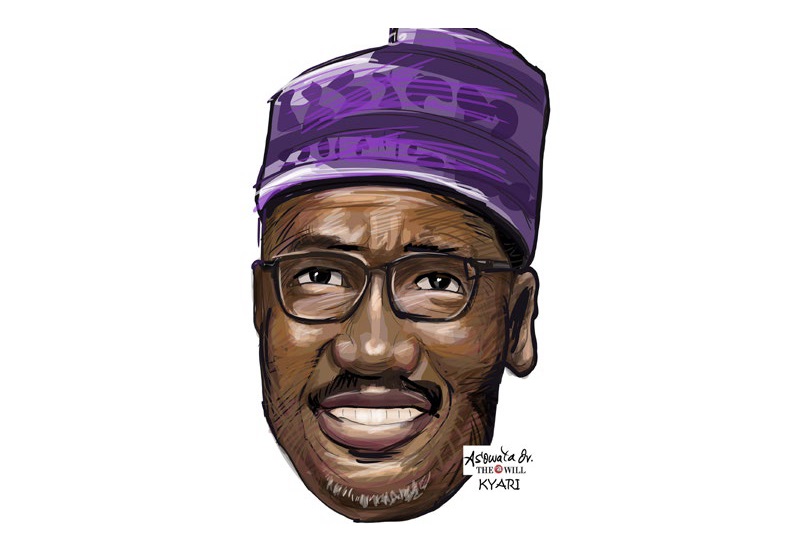October 13, (THEWILL) – The recent fuel price hike in Nigeria, announced by the Nigerian National Petroleum Company Limited (NNPCL) on October 9, 2024, has brought the issue of fuel subsidies back into the national spotlight. The increase, which saw petrol prices rise to over N1,030 per litre in Abuja and other states and N998 in Lagos, marks the third such hike this year and comes amid ongoing economic challenges for many Nigerians.
This price adjustment is part of a broader context of economic reforms initiated by President Bola Ahmed Tinubu’s government, which included the removal of the long-standing fuel subsidy programme that corrupt officers of the NNPCL and their co-conspirators have used to fleece the nation of billions of dollars over the years. The subsidy, while intended to ease the financial burden on citizens, had become a significant drain on national resources and a source of mind-boggling corruption.
Although President Tinubu had emphatically declared the end of the subsidy programme in his inauguration speech on May 29, 2023, his administration did not discontinue it, despite open denials by officials.
However, with the current pricing of petrol nationwide, with all licensed major dealers now able to source petrol freely from refineries and sell to the public, it is now evident that subsidy on petrol is now gone for good.
While explaining that it has no hand in setting the current price of petrol, the Federal Government cited the provisions of the Petroleum Industry Act (PIA) that prevents the government from fixing fuel prices.
It said the NNPCL, now a limited liability company, must operate without absorbing losses indefinitely. This stance underscores the government’s commitment to market-driven pricing in the oil sector, a move it intends will attract investment and promote efficiency.
Anyone who follows my column would know that I have been a staunch advocate against the fuel subsidy programme because of the monumental fraud associated with it. There are more efficient ways of subsidising costs for people who truly need it.
Free education from elementary through secondary school, a highly subsidised university education, subsidised primary healthcare and public transportation is better for our people. We can add good roads and end the insecurity that keeps people from their farmlands. I would even advocate food stamps for those who need help with food (adult and baby food/milk).
However, the reaction from labour unions has been one of strong opposition as expected. Joe Ajaero, President of the Nigeria Labour Congress (NLC), condemned the increase, arguing that a private company should not have the power to dictate fuel prices that so profoundly affect the livelihoods of millions of people. Ajaero has also criticised the government’s failure to implement alternative energy solutions, such as the Compressed Natural Gas (CNG) initiative, which could have provided some relief to consumers.
Industry experts have offered insights into the mechanics of the price increase. Many have argued that the withdrawal of NNPCL as a middleman in the fuel supply chain has led to higher prices. With marketers now having to purchase petrol directly from the Dangote Refinery, for instance, the pricing structure has become more complex, potentially leading to further increases in the coming weeks.
The involvement of the Dangote Refinery in the fuel supply chain represents a significant shift in Nigeria’s energy landscape. As one of the largest refineries in Africa, its operations are expected to reduce Nigeria’s dependence on imported fuel. However, the initial impact on prices has been an increase rather than the decrease many had hoped for, highlighting the complexities of transitioning to a deregulated market.
The Nigerian Association of Chambers of Commerce, Industry, Mines and Agriculture (NACCIMA) has expressed concern about the impact of these price hikes on businesses, particularly Micro, Small, and Medium Enterprises (MSMEs). These enterprises, which form the backbone of Nigeria’s economy, are already struggling with high operating costs and may find it difficult to absorb the additional expenses associated with higher fuel prices.
For the average Nigerian, the impact of these price increases has been severe. Many citizens have reported significant changes in their daily lives, from longer queues at petrol stations to dramatically increased transport costs. The ripple effects are being felt across various sectors of the economy, with the prices of goods and services rising in response to higher fuel costs.
Rural communities, often overlooked in these discussions, are facing even greater challenges. With limited access to public transportation and greater reliance on personal vehicles or informal transport systems, rural residents may find themselves increasingly isolated and economically marginalised.
Despite all these challenges, it is important that we all recognise the undeniable fact that the removal of fuel subsidies was a necessary step towards creating a more transparent and economically viable fuel market. The previous system was unsustainable, draining resources that could have been directed towards more productive investments benefiting a broader segment of the population.
Now that subsidy is gone, the billions of naira previously allocated to subsidies, which became a conduit of corruption, can potentially be redirected towards critical areas of need like I enumerated earlier. We can add affordable and efficient public transport options that take advantage of water systems and rail networks too. Improving power generation and supply is essential for both economic growth and alleviating the financial pressure on households and businesses. Nigeria has long struggled with an unreliable electricity grid, forcing many to rely on expensive generators. By investing in power infrastructure, the government can help reduce the dependence on fuel for power generation, potentially lowering costs for consumers and businesses alike.
To address the immediate needs of the most vulnerable populations, the government should consider implementing targeted support measures. This could include direct financial assistance to low-income families, helping them cope with rising fuel costs and necessities. However, it is crucial that such programmes are designed with transparency and accountability to ensure that the funds reach those who need them most.
Supporting the agricultural sector through subsidies for fertilisers and seeds, along with investments in food storage and distribution, could help stabilise food prices and enhance food security. This would be particularly beneficial for rural communities and could help offset some of the inflationary pressures caused by increased fuel prices.
Transparency and accountability must be at the forefront of these initiatives. Regular reporting on how subsidy savings are being utilised and engaging civil society in oversight can help build public trust and ensure that the benefits of these reforms are felt by all Nigerians.
While the end of the fuel subsidy regime has brought immediate hardships, it also presents an opportunity for Nigeria to recalibrate its economic policies, investments and priorities. By redirecting funds towards critical infrastructure, public services, and targeted support for vulnerable populations, the Tinubu administration can work towards creating a more equitable and sustainable economic future. This transition will require patience and careful management, but if implemented effectively, it has the potential to lay the groundwork for long-term prosperity that benefits all citizens, not just a select few.







